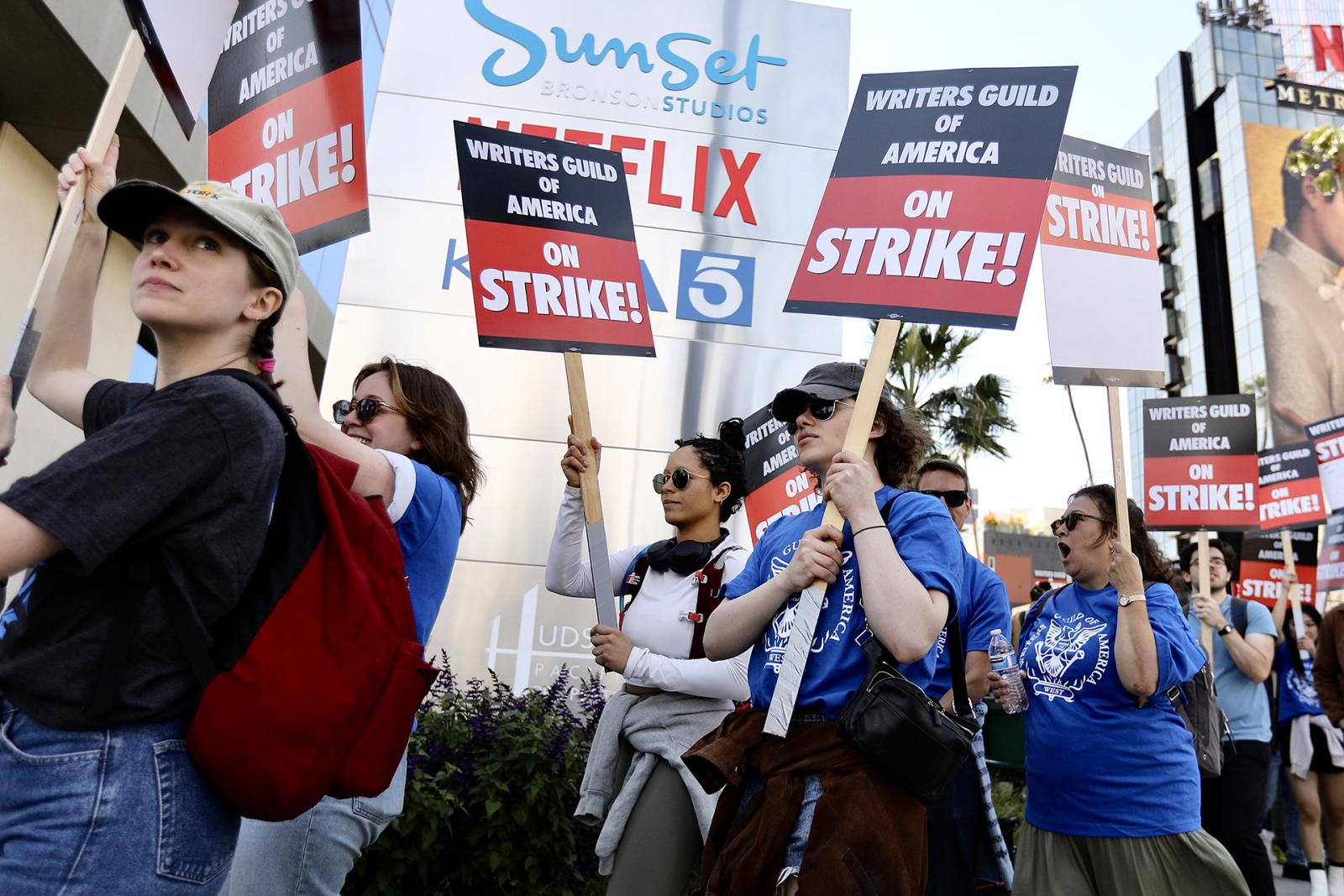Writers Guild of America Officially on Strike: List of Consequences For 2023 TV

What does the WGA strike mean for your favourite shows?
After negotiations between the Writers Guild of America (WGA) and the Alliance of Motion Pictures and Television Producers (AMPTP), more than 11,000 writers are now officially on strike. This means they will not be taking part in writing, revising, pitching or negotiating with over 350 TV and film companies.
So, now the strike is a reality, what impact will it have on TV and movies for 2023?
Late-night chat shows will go first
Late-night chat shows (which are mostly staffed by WGA members) need writers to produce the up-to-date content that keeps them popular. They were the first to go in the 2007/08 writers strike – and will most likely be the first casualties this time.
And the hosts are on the writer's side. On Monday evening, Jimmy Fallon said, 'I need my writers. I got no show without my writers.' And Seth Meyers threw his weight behind the strikers last week when he said what they're asking for is 'not unreasonable.'
In the previous strike of 07/08, late-night shows immediately started showing reruns but then brought back shows without writers. Naturally, this diluted the product and is not a sustainable practice.
Daytime soaps will be the next to suffer
Daytime soaps will survive a strike of fewer than around a fortnight. Anything beyond that, though, will soon catch up with them. This could result in cutting episodes, interrupting the storytelling or pausing production altogether.
.jpg)
Major shows could come away unscathed (if we're lucky)
Major network shows that have already filmed are safe – for the time being. May and June are the months when the production of shows due to air in the autumn begins. So, protracted strike action could result in delays to production getting underway or shorter seasons.
What about streaming services?
The strike will take longer to hit streaming services as they tend to have a pretty full stock of shows to put out. But a prolonged period with any TV shows being produced will have an impact. It could be that they have to roll out their new shows more slowly – or that their biggest shows are released in the traditional one-episode-a-week format.
This is risky in an industry that is highly competitive but not yet making huge profits. However, some of the biggest names in the world are in this sector and might be prepared to dig in and stand their ground in order to win the war. Certainly the likes of Apple, Amazon and Disney are better prepared for a long drawn-out battle than many of the jobbing writers taking them on.
Will movies be affected?
Movie schedules for 2023 should be unaffected. But filming for those due out in 2024 (and even 2025) might be delayed if the strike lasts for months rather than a few weeks.
Will there be any long-term consequences?
Ultimately, strikes are about long-term consequences, and this one is no different. What those consequences are, though, will be determined by the outcome of the negotiations.
The crux of the issue is that the WGA is asking for minimum staffing levels on shows and a minimum number of working weeks for writers based on the length of a show. They also want to see a ban on AI being used to write scripts.
The AMPTP are not happy to ban bots as they want the freedom to embrace new technologies that become available. This is not necessarily a major issue right now, but if you consider the formulaic nature of police procedurals, for example, you can see how AI could eventually replace human writers for such a show. Blue Bloods is a great example of this.
Another potential problem for writers is the shift towards streaming. Seasons on many streamed shows are limited to 8-10 episodes, as opposed to 20 or more on network TV. With the WGA arguing for guaranteed working days based on season length, the AMPTP could leverage this to move in the direction of shorter seasons of broadcast TV shows to bring them in line with streaming services.
What about the rest of the industry?
Negotiations are ongoing between the AMPTP and the Screen Actors Guild - American Federation of Television and Radio Artists (SAG-AFTRA) that could see actors also strike, compounding the issue and putting greater pressure on the AMPTP to reach a compromise.
Then there are all the other jobs in the TV and film industry to consider. The sector supplies work for a huge amount of tradesmen, caterers and other professions, all of which will be hit. The 2007/08 strikes cost the LA economy an estimated $2 billion (2023 equivalent of around $3 billion).
Months without work could lead some of those people – along with writers, many of whom need other jobs to pay their way – moving on from the film industry. And this could leave a major gap to fill when production does get underway again.